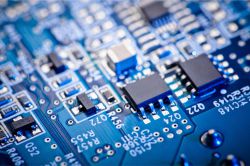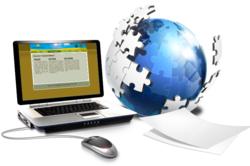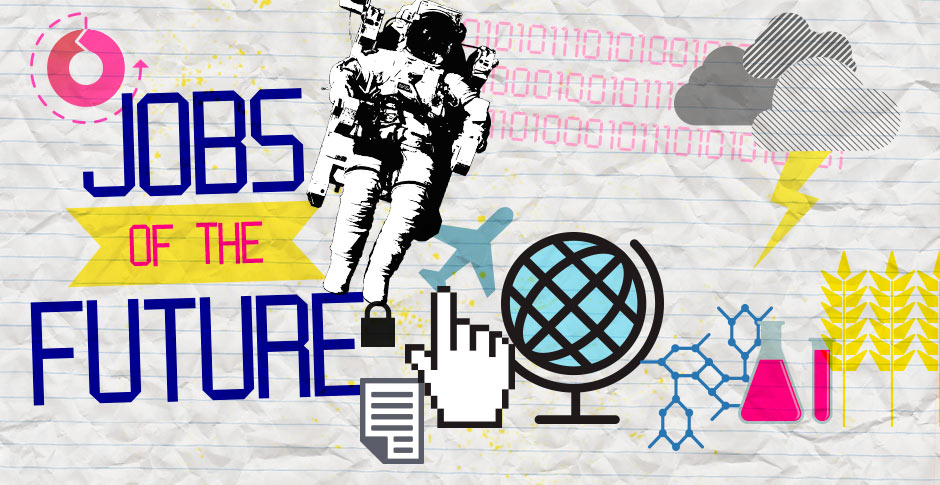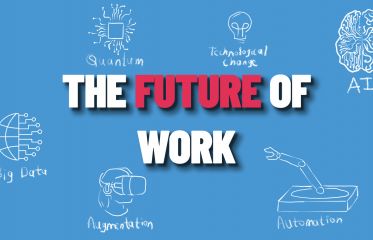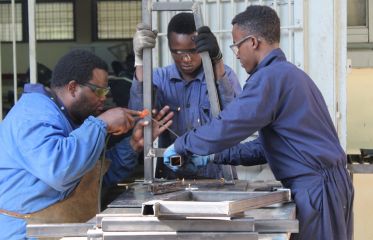The world of work is changing. Machine learning, the internet of things (IoT) and cloud computing are altering how society views employment and the tasks that are currently performed by humans.
The World Economic Forum predicts that new technologies will create 133m jobsover the next three years – and these new roles may involve humans working closely with new technologies.
As previously unconnected machines are hooked up to the internet, more data about their performance can be collected, resulting in the need for human jobs to adapt. The marine division of construction company Caterpillar, for instance, has been attaching sensors to generators, engines and fuel meters onboard ships. The data collected from these have resulted in less maintenance work needing to be carried out, as the company is able to predict when engineers will be required to conduct repairs.
Analysts at Gartner have predicted there will be more than 20.4bn IoT devices online by 2020, and the upcoming deployment of 5G will make remote connections more reliable, and enable more sensors to be used.
“I think that impact for most workers won’t be job loss, but job augmentation – routine tasks may become automated, but humans will continue to play a significant role,” says Prof Donald Hislop, director of the Centre for Professional Work and Society at Loughborough University. Humans will work with machines, rather than be completely replaced by them. The technology and IT sectors that will be impacted – machines have already been taught to write code – may see more variety in jobs.
“This is one sector that may experience job growth going forward,” says Hislop. “This sector may be dynamic and evolving.” While day-to-day responsibilities may shift dramatically due to new technology, there are still going to be plenty of humans in the loop, and certain roles will be more important than ever.
Chief information officer
Businesses are increasingly being powered by data. Most of the current machine-learning systems are fed large datasets that help them to understand patterns in information and draw conclusions from it. The IoT and cloud computing is increasing the data companies deal with, and chief information officers (CIOs) will be responsible for putting this data to use. CIOs will be needed to understand what data a business holds and how it can use it to its advantage. By having full knowledge of a firm’s digital assets, the CIO will be able to optimise how a company works and keep it running efficiently. Increasingly, the CIO role is also becoming a key strategic position within a company, as opposed to being focused solely on tech support.
Cybersecurity and risk managers
Cyber-attacks aren’t going anywhere. Criminals are already starting to experiment with the use of automation and AI in cyber-attacks and they will only become more sophisticated. AI systems can already sit inside corporate networks and detect malicious software and behaviour. This will increase in the future. Cybersecurity and risk managers will be required to oversee protection systems and be able to respond to the type of human creativity that helps to create new attacks. They’ll also be responsible for ensuring the data of individuals is used fairly and ethically. As data from a wider range of products and sensors is collected, it will need special privacy considerations, which will only be possible by experts.
Innovation officer
As firms begin to better understand the data they hold, it will be crucial to use it in ways that work for both the company and its customers. Traditional businesses that don’t rely on data may need to expand their digital offerings significantly in order to compete. The innovation officer will be responsible for discovering how a business can unlock new technologies to its advantage. They will work with robotics, virtual reality and newly developing forms of technology: these will both be consumer and internal. The innovation officer will be responsible for ensuring that technologies are used efficiently in everything from supply chains and warehouse systems to human resources. It will be their role to ensure a business retains a competitive advantage and offers unique services.
Developers
As the world of work changes, developers will be needed to respond to strategic business decisions. When an innovation officer decides that new sensors can be added to delivery vehicles to improve driver efficiency, it will be the role of developers to ensure the system works for the employer and employee. Developers, coming from backgrounds of advanced mathematics, will be required to develop new algorithms that can solve increasingly difficult problems and work with connected machines. They will have to figure out how internal corporate networks can be accessed anywhere in the world. The systems they produce will be user-friendly and able to present their results in ways that every employee and customer can understand.
AI (Artificial Intelligence) engineers
AI tech can break down. As new use cases and applications for the technology are developed, they will also need managing. AI engineers will be responsible for ensuring systems run smoothly and there are no technical problems with implementations. Human oversight of AI will be required to ensure that they are not showing signs of bias, to fix errors in coding, and offer help in managing the technology for those less familiar with how it works.
Adapted from https://www.theguardian.com














